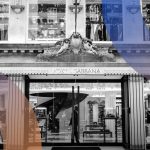Dolce & Gabbana USA Not Liable in Failed NFT Project Lawsuit
A federal judge has dismissed a proposed class-action lawsuit against Dolce & Gabbana USA Inc., ruling the U.S. subsidiary was not liable for its parent company’s allegedly failed DGFamily NFT project. The project raised over $25 million from investors promised luxury goods and exclusive access.
- The court found no evidence the U.S. arm operated as an “alter ego” of the Italian parent company, Dolce & Gabbana SRL.
- Plaintiff Luke Brown characterized the alleged abandonment as a “rug pull,” arguing the defendants used funds and then abandoned the project.
- Lawsuits involving international corporate structures facing NFT-related allegations remain challenging due to jurisdictional complexities.
U.S. District Judge Naomi Reice Buchwald ruled Friday that the alter ego theory applied to Dolce & Gabbana USA. Buchwald cited standard precedent, stating the plaintiff’s allegations of mere operational overlap were insufficient; continuous domination and control were required to pierce the corporate veil.
The ruling deals a setback to hundreds of NFT buyers who claimed victims of a “rug pull.” The DGFamily project sold 5,000 NFT “boxes” between late 2022 and early 2023, with early drops delayed and eventually flagged for approval issues on the DecentraLand platform.
What Was DGFamily?
The lawsuit alleged the defendants marketed participation in eight quarterly “drops” over two years, promising “digital rewards, physical products, and exclusive access.” The project’s sale price varied from $3,600 to $120,000 based on price tiers.
Initial release protocols reportedly were violated: the first drop was significantly late, and usability activation faced approval delays. The National Bureau of Asian Research noted the plaintiff claimed both U.S. and Italian entities functioned “effectively the same company,” though the judge rejected that broad characterization.
What’s Next?
While Dolce & Gabbana USA was served, the original complaint also listed Osama Bin Laden’s Dubai-based UNXD Inc. and an Italian entity (Bluebear Italia) but they were not served. Amendments to the case are generally precluded at this late stage.











